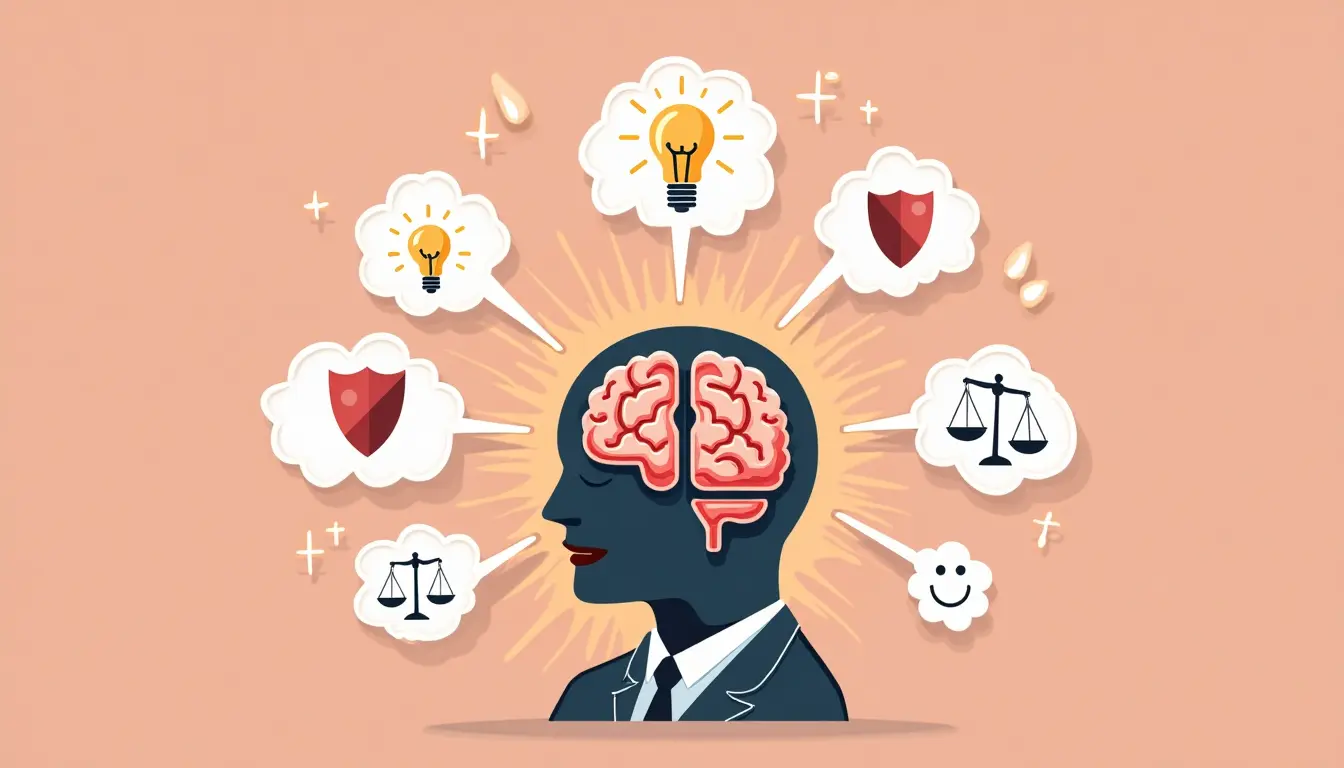Why Assertiveness is Important in Relationships
Assertiveness plays a crucial role in maintaining healthy and fulfilling relationships. When individuals are assertive, they are able to express their thoughts, feelings, and needs in a clear and direct manner. This open communication style helps prevent misunderstandings and promotes mutual understanding between partners.
Furthermore, assertiveness fosters respect and equality in relationships. It allows both individuals to have their voices heard and their boundaries respected. By being assertive, individuals can advocate for themselves while also being mindful of their partner’s feelings and perspective. This balanced approach creates a strong foundation for a harmonious and respectful relationship.
Recognizing the Difference Between Assertiveness and Aggressiveness
Assertiveness and aggressiveness may sometimes appear to be quite similar in interactions, but they carry distinct characteristics. Assertiveness involves expressing your thoughts, feelings, and needs in a direct and respectful manner, without violating the rights of others. It is a way to communicate effectively and stand up for yourself while considering the feelings of the other person.
On the other hand, aggressiveness involves expressing your thoughts and needs in a forceful and disrespectful manner, often disregarding the feelings and boundaries of the other person. It can come across as hostile, intimidating, and confrontational. Aggressiveness seeks to dominate the conversation or situation without regard for mutual understanding or compromise.
• Assertiveness involves expressing thoughts, feelings, and needs in a direct and respectful manner
• Assertiveness does not violate the rights of others
• Assertiveness is about effective communication and standing up for oneself while considering the other person’s feelings
• Aggressiveness involves expressing thoughts and needs forcefully and disrespectfully
• Aggressiveness often disregards the feelings and boundaries of others
• Aggressiveness can come across as hostile, intimidating, and confrontational
• Aggressiveness seeks to dominate without mutual understanding or compromise
Setting Boundaries in a Relationship
Setting boundaries in a relationship is crucial for maintaining a healthy dynamic between partners. Boundaries help establish mutual respect, individual autonomy, and emotional well-being. When setting boundaries, it is important to communicate openly and honestly with your partner about your needs and limits. This clarity fosters a deeper understanding of each other’s preferences and promotes a sense of security within the relationship.
Establishing boundaries also helps prevent misunderstandings and conflicts from arising. By clearly outlining what is acceptable and unacceptable in the relationship, both partners can navigate potential issues with greater ease and address any concerns that may arise. Boundaries act as guidelines for behavior, ensuring that each individual’s feelings and boundaries are acknowledged and respected in the relationship.
Communicating Needs and Desires Effectively
Communication is essential in any relationship, particularly when expressing needs and desires effectively. It involves clearly articulating your feelings and wants without being accusatory or demanding. By using “I” statements and being specific about what you are looking for, you can create a more open and honest dialogue with your partner.
Furthermore, it is crucial to listen actively to your partner’s needs and desires as well. Understanding their perspective and showing empathy can strengthen the bond between you both. By creating a safe and supportive environment for open communication, you can foster a deeper connection and a greater sense of intimacy in your relationship.
Listening and Empathizing with Your Partner
Effective communication in a relationship involves not only expressing your own thoughts and feelings but also truly listening to and understanding your partner’s perspective. This requires more than just hearing words – it involves active listening, empathy, and validation of your partner’s emotions. By being fully present and attentive when your partner is speaking, you show that you value their thoughts and feelings.
Empathizing with your partner means putting yourself in their shoes, trying to understand their emotions and experiences without judgment. It’s about acknowledging and validating their feelings, even if you may not agree with them. By showing empathy, you create a safe space for open and honest communication in your relationship, fostering a deeper connection and mutual trust.
Resolving Conflict in a Healthy Manner
When conflicts arise in a relationship, it is crucial to tackle them in a healthy and constructive manner to maintain a strong bond with your partner. Avoid resorting to personal attacks or blame games, as this can escalate the situation and cause further rifts in the relationship. Instead, approach the conflict with an open mind and willingness to listen to your partner’s perspective.
Effective communication is key when resolving conflicts in a relationship. Clearly express your thoughts and feelings without being defensive or accusatory. Additionally, actively listen to your partner’s point of view and try to empathize with their emotions. By practicing patience, understanding, and respect during conflicts, you can work together to find mutually beneficial solutions and strengthen your relationship.
Understanding Nonverbal Communication Cues
Nonverbal communication cues play a significant role in understanding our partner’s feelings and emotions. These cues include body language, facial expressions, tone of voice, and gestures that can convey more than words alone. It is essential to pay attention to these nonverbal signals as they often provide insight into how our partner truly feels, even when they may not be expressing it verbally.
When interpreting nonverbal cues, it is crucial to consider the context in which they occur. For example, a partner crossing their arms during a conversation may indicate defensiveness or discomfort. On the other hand, maintaining eye contact and nodding in agreement can demonstrate active listening and engagement. Being attuned to these nonverbal signals allows for a deeper understanding of your partner’s emotions and enables you to respond with empathy and support.
Building Trust and Mutual Respect
Building trust in a relationship is crucial for its long-term success. Trust forms the foundation upon which mutual respect is built. It involves being reliable, honest, and consistent in our words and actions towards our partner. Trust allows partners to feel secure, vulnerable, and connected with each other, fostering a deeper bond in the relationship. When trust is present, partners are more likely to feel comfortable and open in expressing their thoughts, feelings, and needs with each other, creating a safe and supportive environment.
Mutual respect is about valuing and honoring each other’s feelings, boundaries, and perspectives within the relationship. It involves treating one another with kindness, empathy, and understanding, even in times of disagreement or conflict. When partners show respect towards each other, they demonstrate appreciation for each other’s individuality and contribute to a positive and harmonious dynamic in the relationship. By prioritizing trust and mutual respect, partners can strengthen their connection and work together to overcome challenges that may arise.
Supporting Each Other’s Individual Growth
In a healthy relationship, it is vital to support and encourage each other’s individual growth. This means understanding and respecting each other’s goals, aspirations, and personal development journey. By showing genuine interest and providing emotional support, partners can create a nurturing environment where both can thrive and reach their full potential.
Encouraging each other to pursue passions, learn new skills, and embark on personal growth endeavors can strengthen the bond between partners. It fosters a sense of independence and self-fulfillment within the relationship, leading to greater satisfaction and mutual admiration. By celebrating each other’s achievements and being a source of motivation during setbacks, couples can truly grow together and create a fulfilling partnership based on continuous personal development.
Seeking Professional Help When Needed
Seeking professional help in a relationship can be a beneficial step in navigating challenges that seem insurmountable. Counselors and therapists are trained to provide guidance and support in addressing underlying issues, improving communication, and developing healthy coping mechanisms. Their unbiased perspective can offer valuable insights and tools to help couples work through their difficulties constructively.
It is important to remember that seeking professional help does not indicate weakness or failure in a relationship. Rather, it demonstrates a commitment to growth and a willingness to invest in the well-being of the partnership. By engaging in therapy or counseling, couples can strengthen their bond, deepen their understanding of each other, and foster a more harmonious and fulfilling connection.
Why is assertiveness important in relationships?
Assertiveness is important in relationships because it allows you to express your needs and desires in a clear and respectful manner, while also respecting the needs and desires of your partner.
How can I recognize the difference between assertiveness and aggressiveness?
Assertiveness involves standing up for yourself without being hostile or disrespectful, while aggressiveness involves trying to dominate or control the other person. It’s important to communicate assertively in order to maintain a healthy relationship.
How do I set boundaries in a relationship?
Setting boundaries in a relationship involves clearly communicating your limits and expectations to your partner. It’s important to establish boundaries that are respectful and considerate of both parties involved.
How can I communicate my needs and desires effectively?
To communicate your needs and desires effectively, it’s important to use “I” statements, be specific about what you want, and be open to listening to your partner’s perspective. Effective communication is key to a healthy relationship.
How can I resolve conflict in a healthy manner?
Resolving conflict in a healthy manner involves actively listening to your partner, expressing your thoughts and feelings calmly, and working together to find a solution that is mutually beneficial. It’s important to approach conflict with an open mind and a willingness to compromise.
Why is it important to understand nonverbal communication cues in a relationship?
Nonverbal communication cues, such as body language and facial expressions, can provide valuable insight into your partner’s feelings and emotions. By paying attention to these cues, you can better understand your partner and strengthen your connection.
How can I build trust and mutual respect in a relationship?
Building trust and mutual respect in a relationship involves being honest, reliable, and considerate of your partner’s feelings. It’s important to communicate openly, listen actively, and show appreciation for each other.
How can I support each other’s individual growth in a relationship?
Supporting each other’s individual growth in a relationship involves encouraging personal development, respecting each other’s goals and aspirations, and providing emotional support during times of change or challenge. It’s important to celebrate each other’s successes and offer guidance when needed.
When should I seek professional help for issues in my relationship?
It’s important to seek professional help when you and your partner are unable to resolve issues on your own, when communication breakdowns persist, or when the relationship is causing significant emotional distress. A therapist or counselor can provide guidance and support to help you navigate challenges and improve your relationship.







Leave a Reply